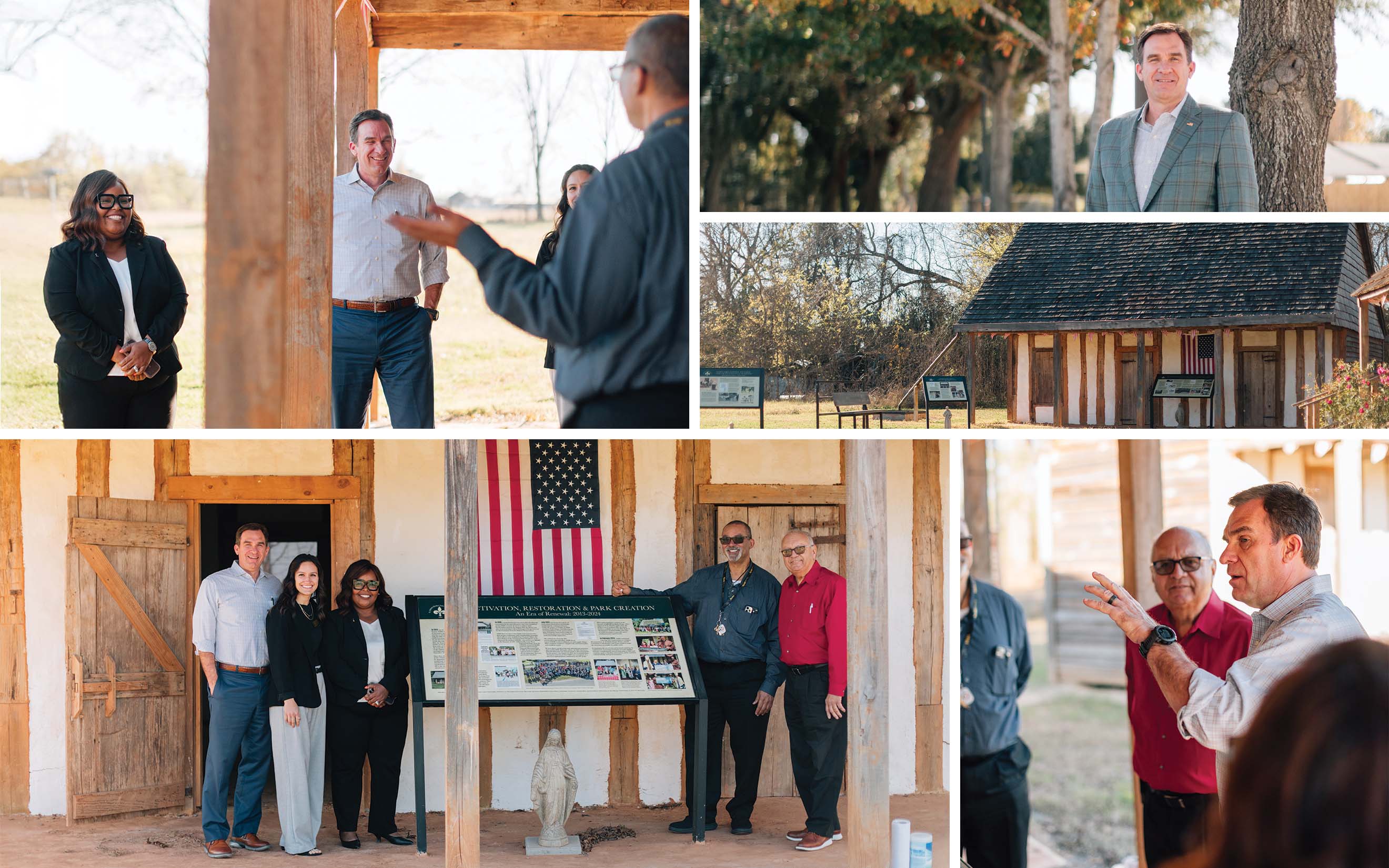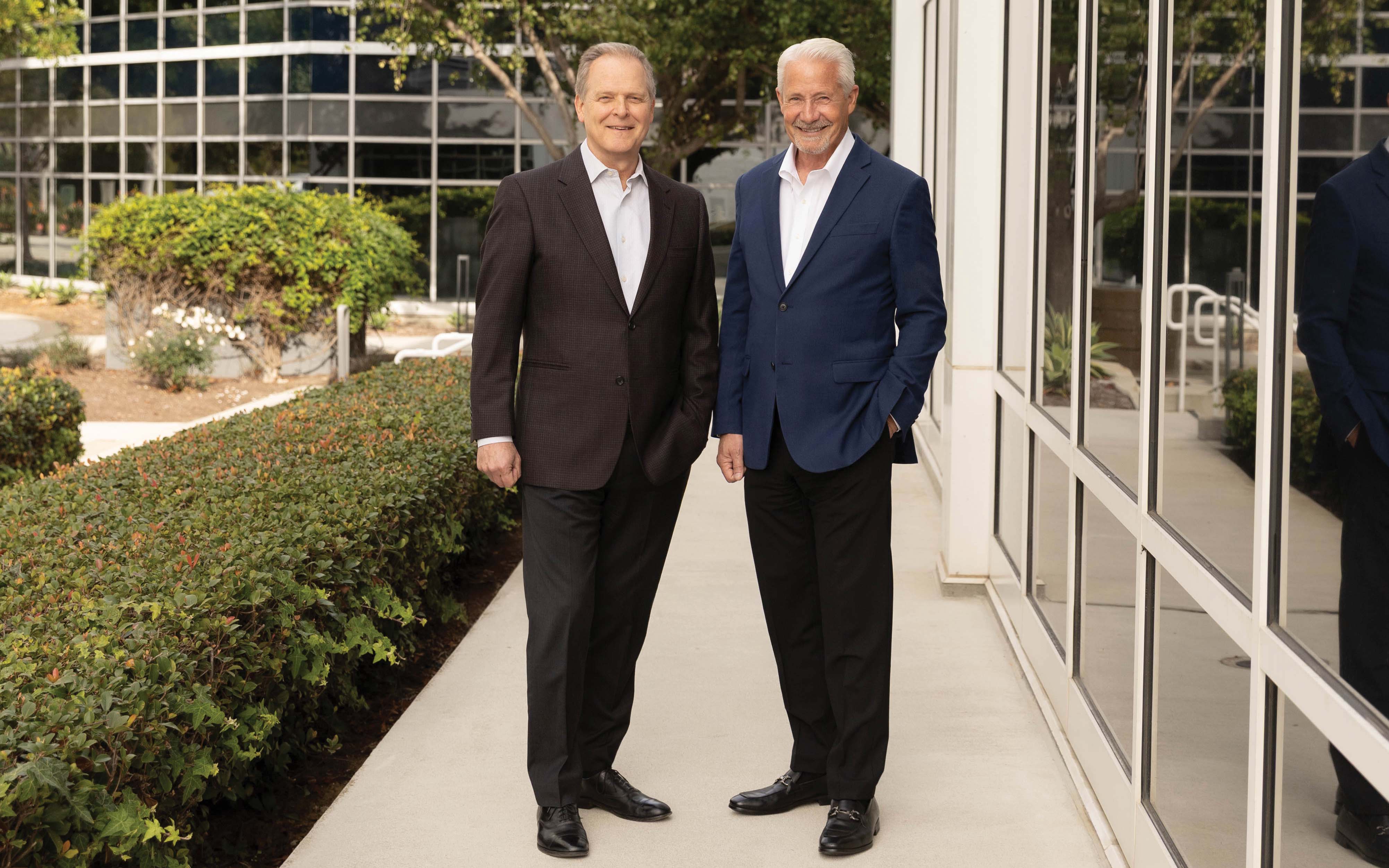De novos breathe new life into the banking sector, but activity is still far below its historic highs. That said, a new crop of community banks shows there’s great potential for success—especially with the power of experienced bankers behind them. Here, de novos tell us how they got their start, the challenges they addressed and what the future looks like for this section of community banking.
The Status of De Novos Going Into 2024
0224 Texas Traditions 2k
February 06, 2024 / By Mindy Charski
De novos breathe new life into the banking sector, but activity is still far below its historic highs. That said, a new crop of community banks shows there’s great potential for success—especially with the power of experienced bankers behind them. Here, de novos tell us how they got their start, the challenges they addressed and what the future looks like for this section of community banking.
Words of wisdom
Thinking of entering the de novo process? Here’s advice from some executives who have crossed the finish line:
“You must believe in the community bank model, that that’s the best way to help small businesses and help your community. If you don’t feel that way, it’s going to be too difficult and you’re probably going to not like it.”
—Keith Costello, Locality Bank
“Surround yourself with good consultants and legal counsel to start this process and be patient.”
—Maria Dubiel, Community Unity Bank
“Have a very experienced team to get out of the gates with.”
—Todd Hovland, EntreBank
“The more transparent and the stronger the communication level you have [with your regulators], the better things will go.”
—Tim Viere, EntreBank
“Don’t do this because you want to do it. Do it because your customers tell you they need it.”
—David Roth, Texas Traditions Bank
A group seeking to charter a new bank in a Houston suburb received a colorful question from a regulatory authority a few years ago.
“He just looked us straight in the eye and said, ‘Do you need a psychological examination?’” recalls David Roth, the consultant who did the business plan and assisted with the regulatory application for what would become $220 million-asset Texas Traditions Bank. “I don’t know if the jury’s in on that verdict or not yet.”
Roth, who subsequently became CFO of the Katy, Texas-based bank, surmises the unexpected inquiry wasn’t just about entering banking amid an unfurling pandemic.
“I think there was an element in his role that it really sounds cool to start a new bank and to be your own boss, but frankly it’s just a lot of work,” he says. “There’s a lot of time and effort that goes into the actual making it happen.”
These days, only a small number of bankers are embracing the challenge of the de novo process even as the need for new banks grows as megabanks close branches and the industry consolidates.
Texas Traditions Bank, which opened in September 2022, was one of only 15 FDIC-insured institutions established that year. Only five were established in 2023.
Below, executives behind four of these de novos share snapshots of their startup journeys and how they are serving their communities.
Seeking shareholders
In 2021, Keith Costello and the other cofounders of $193 million-asset Locality Bank in Fort Lauderdale, Fla., had reason to believe local businesses would welcome a new community bank. By then, consolidation had left only three community banks headquartered in Broward County, down from 11 in 2016, says Costello, who is Locality Bank’s president, CEO and cofounder.
Not long before, Costello had received numerous calls from former customers and others who were frustrated about their inability to get money through the PPP. “They were really not getting the kind of service that they needed during that critical time,” he says.
Costello, fresh off the expiration of a noncompete agreement, and the other organizers approached local business groups with their hypothesis about the need for another community bank. “We asked them to vote with their money,” Costello says.
The response was resounding. The group initially sought to raise $23 million but ultimately netted $38 million. “It was an indication to us that we were on to something,” Costello says. “It’s one thing if people say, ‘Yeah, you should start a bank.’ It’s another if they write checks.”
The group went back to the regulators with what Costello calls a “bigger, stronger growth business plan” to leverage the additional capital and finally opened in January 2022.
The Fed began hiking rates a couple months later, making it more difficult for Texas Traditions Bank to raise capital.
“Each individual investor’s commitment seemed to be just a little bit less than we thought it might have been,” Roth says. “They got conservative because they were just uncertain about what the economy might bring and wanted to have liquidity. A bank that takes 10 years to become mature is not a liquid asset.”
The rate increases weren’t the only source of unease in the investment community in 2022 and 2023 as $28.7 million-asset Community Unity Bank (CUB) in Birmingham, Mich., was raising capital. Toward the end of the raise, the industry was rocked by the failures of Silicon Valley Bank and Signature Bank.
“You would think that would have kind of been a hindrance, but actually ... the failures were really less of an issue for us because we had none of the issues that those banks had,” says cofounder, EVP and chief credit officer Maria Dubiel. “We were starting from scratch.”
Unique time to be a de novo
Arriving on the banking scene amid a Fed fight with inflation has had interesting ramifications. Todd Hovland, cofounder and president of $209 million-asset EntreBank in Bloomington, Minn., says it was “kind of a blessing in disguise” to open a business bank in March 2022 as rates were starting to inch up.
“Our first loan was at 4% and within two months, we were at 5% or 6%,” Hovland says. “So we don’t have a lot of long-term, low-rate debt on our books, which is very fortunate.”
On the flip side, competition for deposits among banks has grown fierce. However, CUB has maintained a good outlook. “Because we have quite a bit of capital, we’ve actually been earning a fair amount of interest on our capital while we’re waiting to deploy it through loans,” says Dubiel. “So it’s been a nice advantage to us.”
EntreBank’s cofounder and CEO Tim Viere also has an upbeat perspective about being a de novo in this peculiar deposit market. “We’ve been very fortunate with our client base, shareholders and board members, who have been really good at referring deposits to us,” he says. “We’ve been able to grow with deposits and not grow with wholesale funding, which is a big deal.”
What’s inhibiting bank formations?
“The creation of de novo banking is just not nearly as robust as it should be,” says Chris Cole, ICBA EVP and senior regulatory counsel. “The main reason is that the application process is just too challenging, and the FDIC is requiring capital that’s way too high for new applicants,” Cole says. “That’s why we’ve been pushing for this idea of phasing in capital requirements.”
Indeed, David Roth, CFO of Texas Traditions Bank in Katy, Texas, says his institution had a minimum capital raise of $35 million. The capital requirements for de novos were much lower when he began consulting with organizing entities more than 15 years ago. “We were looking at numbers like $10 million at a minimum,” he says.
Regulation like the new Community Reinvestment Act rule can also be discouraging. “As regulations increase in size and scope, the attractiveness of getting into banking decreases,” Cole says.
Lastly, there are profit challenges. “Right now, our banks are all managing margin compression,” Cole says. He’s optimistic that profitability will improve once banks can reprice their loans as fast as they’re repricing their deposits, however. “I think when that happens, you’ll see some slight pickup in [deposit] insurance applications.”
Gaining customers through trust
All the de novos are relying more on referrals and relationships to develop business rather than expensive marketing campaigns.
“We have such a good group here of veteran bankers with a lot of years’ experience, and they have a lot of connections,” Dubiel explains. “So our growth is really going to be driven from the bankers and the board [of directors].”
CUB’s bankers have brought over clients from financial institutions they’ve worked at previously, a strategy that has also worked well for Roth’s bank. “Those relationships are vetted,” he says, “meaning that the people that [the bankers] are bringing with them have paid well, they’ve been good customers, they have a trusted relationship there.”
Developing differentiations
One way EntreBank attracts borrowers is by leveraging its niches, which include tax credit lending, business acquisition lending and SBA loans.
“The benefit of having certain niches is it’s not as competitive,” says Hovland. “If everybody’s competing for the same business, it drives the rates down. … Niche lending is not as competitive and it really allows us to price things where they should be priced, or more to the market, instead of pricing to the competition.”
Locality Bank, meanwhile, describes itself on its website as “one part technology and one part local banking.” It seeks to offer a good experience for those who want to come into the branch or be visited by a banker. It also wants to provide a strong experience for those who want to engage digitally, like to open an account online.
While the technology isn’t generally what’s bringing in customers—relationships are the bigger draw—the community bank is building a digital foundation helmed by cofounder, COO and CTO Corey LeBlanc.
“We’re creating a new way of doing business in the community bank space,” Costello says. “[LeBlanc] was given a blank slate as a technology officer to create this model that we’ll continue to iterate and grow and build on, that hopefully we can scale at some point.”
Benefits of building over buying
Acquiring an existing bank is a way to get around today’s higher capital requirements and other regulatory hurdles that de novos face. But there’s a lot more that comes with an existing institution than a charter, which can then make the option unattractive.
For one, there’s the legacy technology. Dubiel says being able to choose CUB’s own core system “was definitely a good thing.” So is having the opportunity to customize its digital platform. “All of it has been created by us using the best of what we saw from other banks’ technology,” she says.
Existing banks generally have a culture in place as well, which is not something EntreBank wanted to inherit. “We really want to establish our own culture, our own identity, kind of bring our team together, where you’re not trying to incorporate into an existing culture,” Hovland says.
Roth lists three other “complications” buyers face in acquiring a bank: They will pay a premium for the charter, the purchased bank likely won’t be located where they want it to be, and they could end up with assets they don’t know how to manage. “[A de novo] takes a little longer, but it’s cleaner,” he says.
Dubiel, who has worked in banking for more than 35 years, says she expected the de novo process would be difficult but couldn’t pass up the opportunity to expand community banking in her area. It drew her out of the retirement she had entered only a few months before.
“The community banking business [in southeast Michigan] seemed to have just evaporated,” Dubiel says. “To be able to be part of something that could bring that back was really fascinating to me.”
How these de novos got their names
EntreBank: The founders of the Bloomington, Minn., de novo, which works with entrepreneurs and others in business, came up with “hundreds of wonderful names,” says CEO Tim Viere. They were all taken. At long last, after playing around with a shorter version of “entrepreneur,” they found their moniker. “Once we said it out loud it really resonated,” Viere says. “We fell in love with it.”
Locality Bank: The Fort Lauderdale, Fla., de novo sought to keep a focus on being a local bank that supports the local community. “It was an obvious choice for us, and it’s also a scalable name,” says president, CEO and cofounder Keith Costello. “It’s not Locality Bank of Fort Lauderdale. It can be Locality Bank in other markets as well.”
Texas Traditions Bank: “People from Texas are largely proud to be from Texas, so we wanted to include the word ‘Texas’ in there somewhere,” says David Roth, CFO of the Katy, Texas, de novo. “The second piece of that was that we wanted to really emphasize the idea that this is traditional banking.”
Community Unity Bank: This name works on two levels, according to Maria Dubiel, EVP and chief credit officer of the Birmingham, Mich., community bank. “We believe our goal of financial empowerment unifies our community,” she says. The bank also goes by CUB, which ties into its goal of having multigenerational clients.
Subscribe now
Sign up for the Independent Banker newsletter to receive twice-monthly emails about new issues and must-read content you might have missed.
Sponsored Content
Featured Webinars
Join ICBA Community
Interested in discussing this and other topics? Network with and learn from your peers with the app designed for community bankers.
Subscribe Today
Sign up for Independent Banker eNews to receive twice-monthly emails that alert you when a new issue drops and highlight must-read content you might have missed.
News Watch Today

Join the Conversation with ICBA Community
ICBA Community is an online platform led by community bankers to foster connections, collaborations, and discussions on industry news, best practices, and regulations, while promoting networking, mentorship, and member feedback to guide future initiatives.












